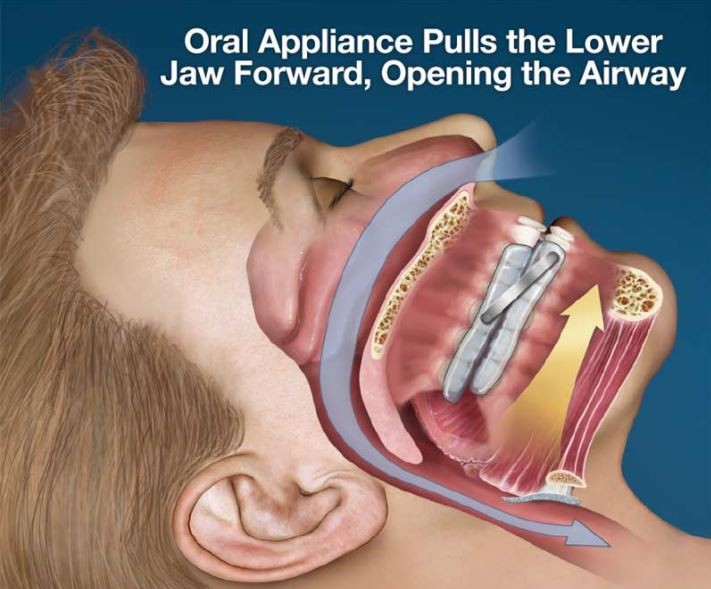People may not realize just how effective sleep appliances for sleep apnea are. Of course, everyone’s heard that sleep apnea can be a life-threatening condition. But, how many people actually do something about it? Knowing that the damage sleep apnea causes to your brain and heart can be fatal should be reason enough to get it taken care of. Yet, it is one of the most ignored conditions in adults. Could it be that people just aren’t aware that their snoring is a symptom of sleep apnea? Yup.
The dangers of sleep apnea aren’t always clear to the general public. What IS clear is that most people DO CARE ABOUT staying alive and keeping their jobs!
There are jobs out there that can become extremely dangerous if you suffer from sleep apnea. For example, truck drivers, chauffeurs, and pilots, should be the most concerned that sleep apnea can cost them their job and their life. It’s much harder for them to drive on broken-up sleep because they’re never fully rested. That’s why it is vital for people who snore and feel overly tired each day to get their sleep apnea diagnosed. A recent court ruling shows that not getting your sleep apnea diagnosed could cost you your job and more importantly, it can prevent you from getting the legal protection available for people with chronic health conditions.
Should you get your snoring tested?
Yes. Loud snoring, gasping for air or choking in your sleep, and experiencing morning headaches and daytime sleepiness are all symptoms of disruptive sleep apnea – a possibly dangerous sleep disorder that affects one in 10 women and up to one in four men (that includes the countless who are overweight).
Not only does sleep apnea affect the quality of your sleep, apnea can activate the release of stress hormones that raise your heart rate and increases your risk for high blood pressure, stroke, heart attack, and type 2 diabetes.
One of the most underdiagnosed adult medical conditions is sleep apnea, and we’d say that, getting your sleep apnea diagnosed will come as more of a blessing than a curse.
What is Sleep Apnea?For those of you who aren’t acquainted with sleep apnea, in its most common form, obstructive sleep apnea (OSA), causes sufferers to stop breathing periodically throughout the night, or breathe so shallowly that the level of oxygenation in their blood drops, leaving their bodies in a nearly nightlong state of metabolic panic.
In some of the more severe cases, affected people may wake up dozens of times in an hour’s time, although these micro-awakenings aren’t generally conscious ones, and so sufferers might not even know they’re happening. More than just an exhausting aggravation, people with OSA are at a much greater risk of developing countless medical conditions. That includes conditions such as obesity, depression, heart disease, heart attack, and sudden death.
While weight itself is a major risk factor for the advancement of OSA, the architecture of your neck is also involved. So, just because you might be at a lighter weight doesn’t eliminate you from the possibility that you have OSA.
What are Symptoms of Sleep Apnea?
1. Do you snore loudly?
2. Do you feel tired during the day?
3. Has anyone ever told you that you stop breathing when you’re sleeping?
4. Do you have high blood pressure (high blood pressure that’s been treated counts as high blood pressure)?
5. Is the size of your neck size greater than 15.75 inches?
6. Is your BMI greater than 35?
7. Are you older than age 50?
8. Are you a male?
Sleep apnea symptoms differ, but in most cases the indicators include always feeling tired, even after a good night’s sleep; extreme daytime or afternoon sleepiness; and headaches in the morning. People with OSA may have a partner who complains that they’re snoring is extreme; they might even mention that they often detect long pauses in their partner’s breathing, which usually restarts with grunting sounds, snorts or gasps.
The reason we suggested that the diagnosis is more of a blessing than a curse is because the treatment of sleep apnea is incredibly effective and life changing. Just one night of treatment will help you feel more energetic than you have in many years.
The options to treat sleep apnea vary from devices that will help keep you off your back to sleep appliances along with CPAP and APAP machines, which keep the airways open, and even surgeries.
Sleep Appliances to Use After a Sleep Apnea Diagnosis
Sleep appliances are an effective treatment option for snoring and obstructive sleep apnea (OSA). A customized sleep appliance will not only improve your sleep but can also restore your alertness and revitalize your health.
Worn only during sleep, sleep appliances may come in way of items like a mouth guard or an orthodontic retainer. They support the jaw in a forward position to help you keep an open upper airway. Research has demonstrated that sleep appliances are an effective treatment option for snoring and obstructive sleep apnea.
If you and your doctor decide that sleep appliances will be the best form of treatment for you, then your doctor will write a prescription for you to receive a custom-made sleep appliance. You will also get a referral to a skilled dentist who can provide oral appliance therapy. There are more than 100 sleep appliances that have received FDA clearance. Your dentist will recommend the sleep appliance that best suits you and your condition.
Advantages of Sleep Appliances
Sleep appliances are an effective, non-invasive form of treatment that will easily fit into your lifestyle. Patients like sleep appliances because they are:
* Comfortable
* Easy to wear
* Quiet
* Portable
* Convenient for travel
* Easy to care for
Protect your job and your life with diagnosis and treatment for sleep apnea!
You may think that a sleep apnea diagnosis will make things harder for you at work, but it will actually make things easier. Without the diagnosis, you might continue to struggle with all of the effects of sleep apnea, like memory loss, cognitive impairment, daytime sleepiness, fatigue, wandering attention, and more. These symptoms can lead to traffic accidents or workplace accidents as well as disciplinary actions for lateness, inattentiveness, and mistakes. It can lead to being fired, injury, or untimely death. But what it won’t lead to is protection from being fired, and it surely won’t lead to a cure.
Once your sleep apnea is diagnosed, you can start getting treatment, which will expand your functionality at work so you’re able to do your job well. And if you do have remaining effects that treatment doesn’t ease, you can apply for practical accommodations and defenses under several applicable workplace guidelines.


